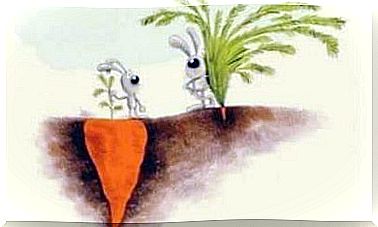Uncertainty Tolerance: A Key To Better Living

If there is anything true in life it is the fact that we are not sure of anything or very little, to break the paradox as Descartes would say. Even so, in Western society, the idea that it is possible to keep everything under control is constantly promoted and we need to find quick and punctual solutions for everything. One characteristic that is decisive for adaptation and that we do not usually practice is tolerance to uncertainty.
Tolerance to uncertainty is precisely this ability to deal with the lack of certainties and immediate solutions. Although we always try to sort everything out and find an answer, the truth is that it’s impossible. Sometimes answers and solutions only come with time. In others, they are simply impossible to find. Humanity doesn’t know everything. Furthermore, what we ignore far exceeds what we know.
That said, we all agree and understand that it is. But in practice everything is very different. There are many people who cannot tolerate uncertainty. Restlessness invades them, and even irritation, when they feel without a solid pillar to lean on.

intolerance to uncertainty
People who have no tolerance for uncertainty have a need to experience something known as cognitive closure. This concept is what we commonly call “the last word”. There are people who need things to be settled once and for all. Either yes or no. Either white or black.
This feature causes them to experience a lot of stress when it doesn’t. Cognitive closure implies a certainty. “Do you love me or don’t you love me”? They want an absolute answer: a yes or a no. They cannot understand that the most realistic answer could be “yes and no”.
For those who have no tolerance for uncertainty, paradoxes and ambiguities are unacceptable. They don’t see them as a reality, but as a lie, a deception or a mechanism to cover up the truth. The bad news for them is that we can say that in human beings practically everything is ambiguous.
The effects of uncertainty intolerance
Uncertainty intolerance is often the result of a simplification of reality. The chances of what happens are very slim. It’s either one or the other. The person has difficulty making assumptions and drawing new hypotheses, or simply accepting that it is not possible to understand, at least for the moment.

They don’t realize that, for example, the same fact can be the result of many different circumstances. If someone isn’t interested in reading, maybe it’s not just because they’re careless or ignorant. Within his subjectivity, there may be a thousand reasons for him to act like that.
Therefore, intolerance of uncertainty often includes a lack of empathy. The world is seen only from its own perspective. This makes it difficult to accept the differences, as it seems that “the right one” should express itself as a consensus. Furthermore, we believe that for a group, family, community or couple to “live well”, members must completely agree on everything.
Uncertainty Tolerance Manifestations
Tolerance to uncertainty manifests itself as the ability to accept the lack of a concrete answer. People who possess this quality are not distressed or anxious when the answer does not appear instantly. They simply accept and move forward with the elements that count, concentrating on resolving what they understand and looking out for new facts that emerge to help them elucidate what is really going on.
They analyze the facts thoroughly. They don’t just stay in appearance, but try to go deeper. So they realize that things can be much more complex than they seem. In this way, they understand that it is difficult to arrive at answers or definitive certainties.

Interestingly, people with less tolerance for uncertainty are more confident in their judgments and decisions when they need to decide something. In contrast, those who have developed a high tolerance take longer and hesitate before acting. Even so, they tolerate conflicts and differences better, and tend to have better relationships with others.








